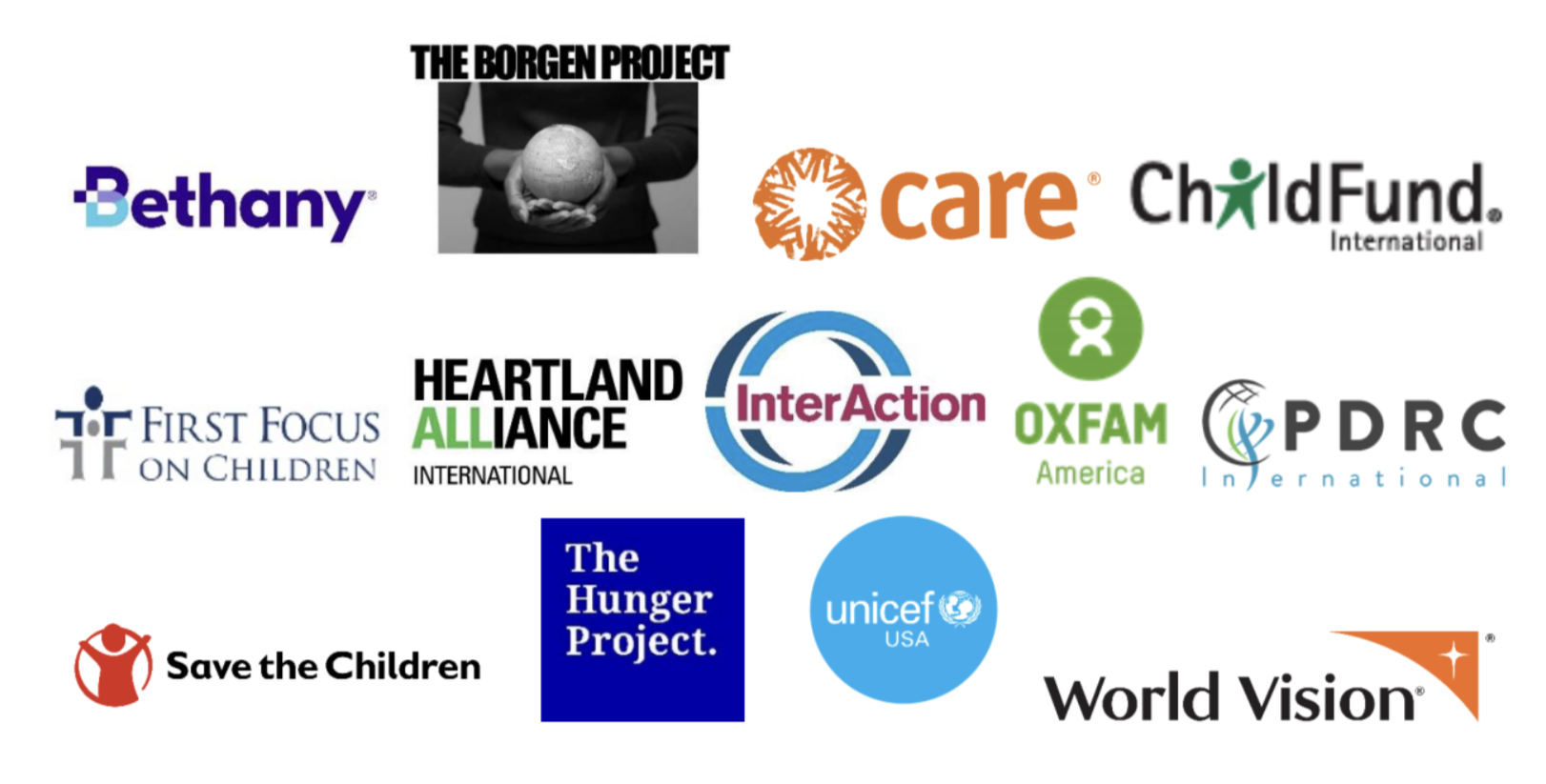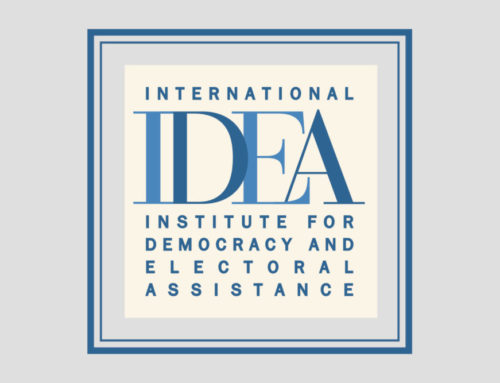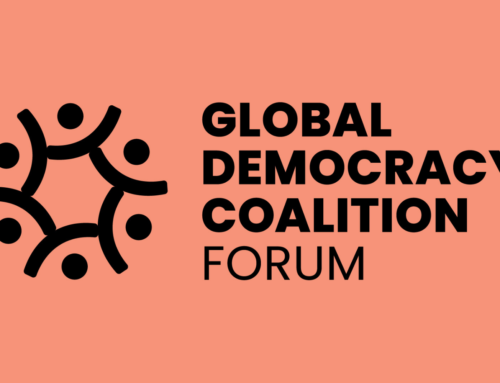Policy Asks for the 2021 Summit for Democracy
Millions of children under eighteen years old around the world do not have what they need to survive, learn, and thrive because governments and other powerful actors do not prioritize them, do not listen to them, and are not held accountable when they fail them. Children need access to quality and equitable services, protection from harm, and the means to fully participate in civic and political decisions that affect them. This will require U.S. government action to invest in children’s services, open political spaces for children from all backgrounds to participate, and remove barriers such as access to asylum and public safety. Adolescent girls face additional barriers and discrimination on account of their age and sex and require increased support.
This Children’s Democracy Platform sets forth those actions – within the Summit themes of anti-authoritarianism, anti-corruption, and the protection of human rights – that should be included by the United States government in its Summit for Democracy Action Plan for 2022. This Summit can be an important moment to elevate the role of children in making government work for them.
Pillar 1: Anti-Authoritarianism
- Create a U.S. government strategy to engage local civil society, prioritizing partnerships with children. A strong, diverse, and vibrant civil society is essential for effective and sustainable development and humanitarian assistance programs to deliver on their promise to meet children’s needs and respond to community priorities. The U.S. government should develop a whole-of-government approach to working with local civil society groups with a focus on launching new partnerships with children’s groups. USAID should lead this strategy acknowledging their expertise in civil society strengthening and programs that support children’s needs including education, gender equality, and maternal & child health. The strategy should also include investments in capacity development as needed for local civil society organizations.
-
- As part of these efforts, the U.S. government should develop and mandate the use of inter-agency guidance to systematically consult with local civil society in the design, monitoring, evaluation, and learning processes of U.S. foreign assistance projects, programs, and initiatives. Consultations should include children, especially those most impacted by inequality and discrimination, particularly adolescent girls.
- As recommended in the Girls LEAD Act bills, develop a standalone strategy to increase girls’ civic and political leadership. Research shows that gender equality and the strength of democracy are interconnected, with higher levels of gender equality strongly associated with a country’s relative state of peace. While the recently released National Strategy on Gender Equity and Equality includes strong references to promoting girls’ leadership and girl-led networks, it does not detail actions to elevate girls’ voices in the public sphere. Adolescent girls are frequently excluded from child-focused or women-focused democracy programming; therefore, a distinct strategy for girls’ participation is necessary to ensure that they are included in future U.S. government democracy and governance and peacebuilding initiatives.
-
- This strategy should focus on increasing adolescent girls’ civic and political knowledge, advocacy capacity, confidence, leadership skills and opportunities, research skills, mentorship opportunities, data and media literacy, and supporting their meaningful political participation and engagement in civil society and the public sphere.
- Prioritize U.S. policies to protect civic space around the world to ensure that children can become leaders in their own communities. Global trends point to an alarming closure of civic space. For community groups to effectively provide public services, mobilize constituents, hold their government to account, educate populations, and advocate for change, these groups need a political, policy, financing, regulatory, cultural, and legal environment that allows them to fulfill those roles. The U.S. government should continue and expand investments in programs that protect civic space and the ability of civil society organizations to operate. They should also include child representation in public decision-making processes at all levels through surveys, child parliaments, targeted consultations, and other means.
-
- USAID should expand the Civil Society Organizational Sustainability Index to continue measuring the viability of the CSO sector and informing CSO strengthening programming.
- Use diplomatic channels and levers to oppose laws criminalizing civil society and constraining legitimate civil society activity, including access to funding.
- Invest in and directly fund local children’s organizations and activism – especially girl-led organizations – to shift power and resources to communities and in-country actors. To advance locally-led development, as part of Administrator Power’s announced 25% target for funding to local organizations, the U.S. government, principally through USAID, should increase funding directly to children’s groups – especially in low-resource areas – to enhance their operational capacity and elevate their profile in-country. Investments should be based on nationally and community determined need, and tailored to support the specific goals, objectives, and priorities of each group, and prioritized for historically under-funded groups, particularly those led by girl-led organizations and networks. Support may include helping build risk preparedness and strengthening advocacy, analysis, budgeting, and management functions, depending on local context and needs as determined by those organizations.
-
- USAID should enact procurement reforms to enable targeted and sustainable access to funding for these organizations. Core support, in addition to project-based partnerships, is vital to building effective community-based organizations.
Pillar II: Anti-Corruption
- Increase U.S. funding for equitable, accountable domestic revenue mobilization (DRM), especially at the subnational level, to increase high quality service delivery for children. Sustainable domestic financing is essential for long-term development impact and enhancing self-reliance. The U.S. can play an important role by increasing its foreign aid to support DRM with a focus on equity and inclusion. In particular, U.S. development agencies can enhance their work with subnational governments to increase equitable revenue generation. This is a good value for money because local governments tend to be closer in proximity and more responsive to their constituents to improve social service delivery that can improve the lives of children.
- Invest in children’s organizations and child-focused agencies to engage in budget and tax advocacy. As children cannot vote, their inputs and interests are not often reflected in public decision-making processes, especially at the planning and budgeting stages for services. Child-focused networks and other civil society actors can work with governments to ensure children’s voices are heard and that government officials are held accountable for spending tax dollars in ways that are pro-poor and improve gender equality.
-
- USAID should invest in programs that educate children about the way these processes work, how they affect children, and how children can engage with decision-makers, producing child-friendly materials to communicate information.
- Increase U.S. funding and capacity for data transparency and data disaggregation, with a focus on improving gender and child data. To improve U.S. programs targeting children, the U.S. should improve data capacity, data access, data engagement, and data quality. All country actors should have access to data on U.S. programs that is timely, in child-friendly formats and is provided in all local languages. Data should be disaggregated – at a minimum by age and sex – in order to track progress by social and income groups.
-
- On gender, the U.S. should publish project/program’s OECD-DAC gender marker scores consistently to all relevant open data platforms, particularly IATI, the OECD CRS, and the U.S. government’s own (where applicable, alongside other or uniquely developed gender markers).
- On mental health and psychosocial support, the U.S. should begin collecting and publishing data on its programming and funding allocations. The right to health should cover both physical and mental health in order to meet the needs of the whole child, particularly children in crises. While the MINDS Act shows the dedication of the U.S. to mental healthcare, the U.S. government does not currently track spending on MHPSS in international programs.
- Provide children with mechanisms to evaluate the public services they receive. Children often lack the means to evaluate any of the services they receive, from education, to health, to public safety, and others. As a result, it is extremely difficult for governments to evaluate whether or not the services they are providing are meeting the needs of children. Children should be included in evaluating and assessing development and humanitarian programs as well.
-
- Educate children on their rights for receiving services, and provide children with tools to evaluate those services and programs, including scorecards, feedback forms, and dialogues, with these options including child-friendly materials and facilitation.
Pillar III: Protection of Human Rights
- Protect children in irregular migration flows and refugee crises, including at the Southern U.S. border and contexts like Afghanistan. Displaced and refugee children, often forced to leave their homes to escape conflict, violence, and persecution, are entitled to human rights regardless of their circumstances. Many of these children have experienced profound trauma and are missing out on school and other social services. The Summit for Democracy is a moment for the U.S. government to strengthen its commitment to human rights, including children’s right to safety and protection, in migration contexts, by taking the following actions:
-
- End Title 42, Migrant Protection Protocols (MPP), and metering, and end deportation flights to Haiti and other countries undergoing humanitarian crises.
- Do not detain children for longer than 72 hours, and ensure children are expeditiously reunited with their families. While all cases are different, removing bottlenecks can improve and expedite the process for children.
- Ensure children and families have legal representation in their asylum cases. All children should have legal representatives or at least case managers to help them navigate the asylum process.
- Follow through on the U.S. commitment to humanitarian funding of $4 billion USD for Central America root causes.
- Expedite and expand visas and other options to ensure safe passage out of Afghanistan for those who may be at risk including granting humanitarian parole, expanding eligibility for SIVs to organizations with grants or cooperative agreements, and providing additional support to Afghans eligible for priority 2 refugee referrals.
- Continue to increase the “refugee cap” as necessary to meet growing needs, and ensure appropriate representation from all areas of the world where there a significant number of individuals and families who would qualify for referrals.
- Invest in children’s services in development and humanitarian contexts. As children are one of the largest users of public services, government actions and decisions can significantly increase or severely undermine the potential for all children, including those impacted by inequality and discrimination to survive, learn, and be protected. The U.S. government should prioritize healthcare, education, and protection services for children in its foreign assistance investments and programming.
- Launch a White House-led initiative to urgently reduce child marriage rates. The recently released National Strategy for Gender Equity and Equality references child marriage related to service provision but does not include it as a focus of reducing GBV, which is a major gap. Child marriage is a human rights violation resulting from harmful norms and inadequate systems-level protections. Women married as girls are less likely to have the education, economic security, and other resources that allow them to fully engage in democratic processes. Over the next five years, a new U.S. initiative should expand evidence-based, holistic, and multi-sectoral programming to address the root cause and drivers of child marriage and its consequences, including by:
-
- Targeting and tailoring programming to meet the needs of adolescent girls at risk of child marriage and/or already married, including across age-appropriate gender-based violence, child protection, adolescent sexual and reproductive health, mental health and psychosocial support, and food security and nutrition programming;
- Increasing data and accountability;
- Strengthening normative, legal and policy frameworks, at every level; and
- Investing in political participation and leadership programming for adolescent girls.
- Increase empowerment trainings for groups impacted by inequality and discrimination, particularly women and girls. These groups frequently have fewer resources and more limited access to civic space than majority or privileged groups. Programs that target traditionally discriminated groups can contribute to a more inclusive economy and society for children. Locally-led best practices should be put in place including flexibility funding models, shifting procurements from contracts to grants and cooperative agreements, and simplifying proposal processes and requirements.
We call on the U.S. government to be more responsive and accountable to children by putting in place laws, policies, and budgets that put children first. We hope these ideals around children’s rights will be reflected in the U.S. government’s commitments for the Summit for Democracy.
Contacts: Jenny Russell, jrussell@savechildren.org and Julie Murray, jmurray@savechildren.org




